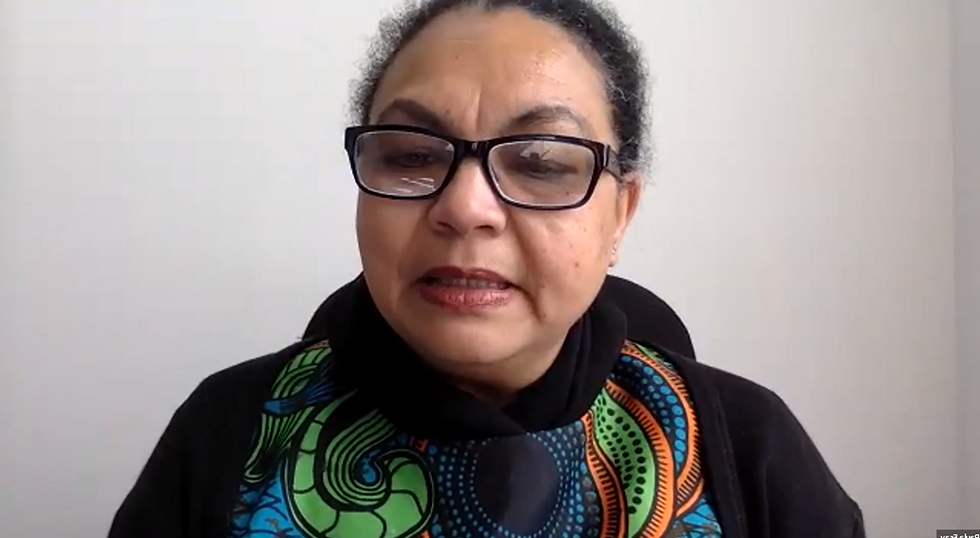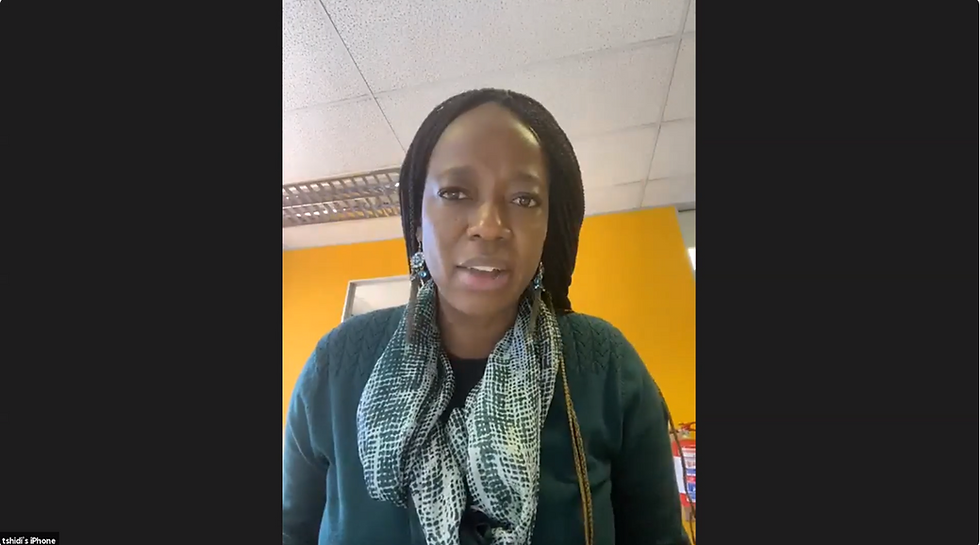Leveraging the power of social media for news
- frayintermedia

- Jul 24, 2020
- 3 min read
As more people have had to work remotely in the COVID-19 pandemic, media companies have the opportunity to widen their engagement with their audiences online through social media.
“We've been doing a lot of work over the continent in the last two weeks working with media managers and in our discussions on the changes of the media landscape, there is no doubt that social media is a critical platform for us to be able to tell our stories,” said fraycollege CEO Paula Fray.

Fray was moderating a fraycollege webinar on harnessing the power of social media and was joined by the founder and CEO of Zimbabwean online news platform 263Chat Nigel Mugamu, South African journalist and social media manager at The Daily Vox Fatima Moosa, Kwambele Social Marketing founder and CEO Matshidiso Modikoane-Mbele and her colleague Linda Simelane, the client and media liaison at the agency.

“It's very important to realise during this phase and time of COVID-19 how digital consumer behavior has changed exponentially,” Modikoane-Mbele said.
A Statista global survey conducted in March 2020 highlighted an uptick in in-home media consumption around the world where “40 percent of consumers spent longer on messaging services and social media”.
“Consumers right now not only use social media to connect with their families but more importantly they use social media to discuss societal issues. And this time of being at home has opened up that space even bigger,” Modikoane-Mbele said.

Simelane said organisations needed to engage in the online space with tailor-made social media content.
“You find that on Facebook, people might not have the time to read an entire two-page spread but if you would post a two-page spread on LinkedIn, the professional audience will have the time to read over that.
“So it's very important that the kind of language you use in the tailoring your messaging is then tailored for each and every platform differently,” he said.
Simelane also highlighted that strategy is important for effective social media communication.
“And when we look at a strategy for any campaign, for any online presence or for any social media we need to look at understanding each platform,” he said.
While the pandemic has accelerated the shift to online, many Africans are still caught in the digital divide. Zimbabwe, a country with over 14 million people, has less than 7% social media penetration according to We Are Social January 2020 statistics. We Are Social Zimbabwe also highlighted that there are just under a million social media users.
“We read some stats a few years ago that indicated that a lot of the people who have internet access in Zimbabwe use WhatsApp. So to them, WhatsApp is the Internet,” Mugamu said.
In Zimbabwe, WhatsApp is a data-friendly social media platform, aided by several WhatsApp data bundles network providers offer.
263Chat sends out a free ePaper on WhatsApp from Monday to Friday to over 42 700 subscribers.

“To give you a bit of context when you add up the four daily publications in Zimbabwe, our distribution outstrips them by 10 times. Basically, our distribution is double the number of their print run combined,” Mugamu said.
Mugamu said it was particularly important to make the ePaper free to its audience, especially when accessing data is a challenge.
“And so why add another cost to them and make it prohibitive for them to get information?” Mugamu said.
While more media companies are exploring subscription options to increase their revenue, Mugamu said free access to information is important because people still need to know about important issues such as governance in society.
Social media helps bring societal issues to the fore where movements such as Black Lives Matter gain traction and support online.
“I love giving the example of the Fees Must Fall movement,” Modikoane-Mbele said, adding that: “We have to understand that social media presents the platform with social issues that can be spoken about and be solved.
“If anyone has heard of The Daily Vox, they know that one of our biggest stories is the Fees Must Fall protest,” Moosa said.

However, she added that even before the movement swept across public South African universities, The Daily Vox was using social media to connect with students and ask them about their issues.
“So from around early that year [2015] we had Open Stellenbosch and Rhodes Must Fall, which is why when the Fees Must Fall Protest happened, The Daily Vox was at the centre,” Moosa said.
The Daily Vox has a young audience between the ages of 18 and 35 and the publication often puts out calls on social media asking for people to get in touch.
“Them having the option to get in touch is giving them agency in a way that they can choose to engage or not engage with us,” Moosa said.
Sign-up to attend future webinars at www.fraycollege.com.





Comments